Allie Sharp Researches Side Effects of Prostate Cancer Treatment
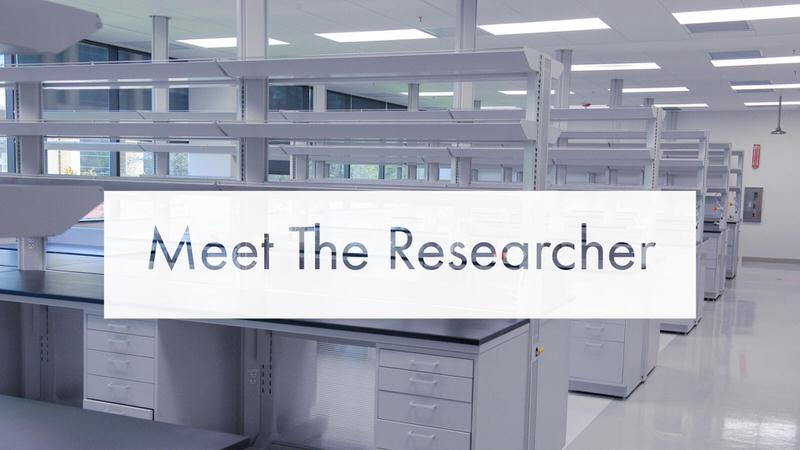
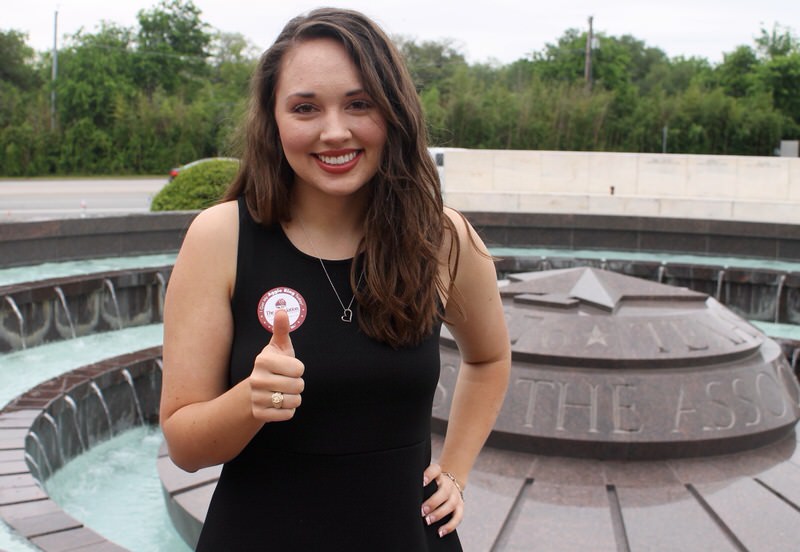 1) Your name, program, mentor name.
1) Your name, program, mentor name.
Alexandra (Allie) Sharp, Neuroscience discipline of the Integrated Biomedical Sciences program, Dr. David Morilak
2) When did you realize you were passionate about science?
When I was in middle school, my science and math classes were always my favorite. When I got into high school, my mom found a newspaper article in the San Antonio Express advertising a program called the Voelcker Biomedical Research Academy. At the time, I didn’t know what “Biomedical Science” meant, but I applied anyways and that summer I found myself sitting in the Academic and Administration Building here at The University of Texas Health Science Center at San Antonio. I quickly discovered that doctors didn’t just treat patients and that there was an entire foundation formed everyday by researchers studying biomedical science. I was fortunate enough to be involved in a program in high school that introduced me to such an immersive science atmosphere. Ultimately, it inspired me to pursue this career because I loved the science aspect of medicine, and I don’t know if I would have realized this was my passion without being involved in program like Voelcker.
3) Please tell me about yourself, why did you pick UT Health San Antonio, and your program.
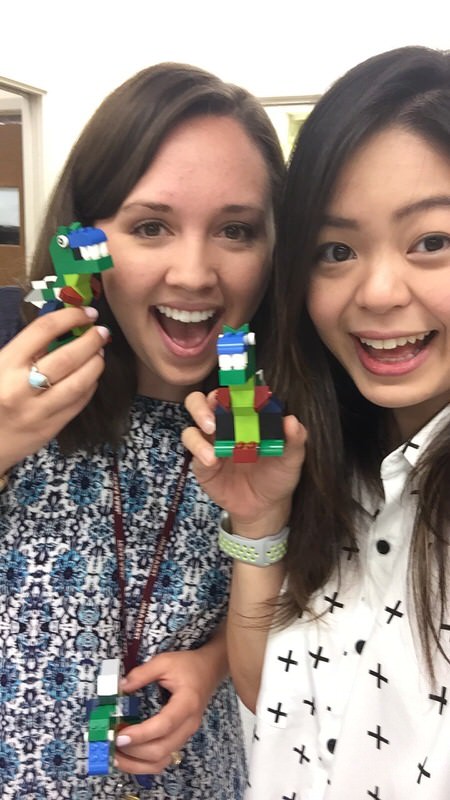 Growing up my dad was Air Force, so I moved almost every year until I was about 10 years old. After a few years of living in Texas, my family decided to stay permanently. At that point, I went to Texas A&M University for my degree in Biomedical Science with a minor in Neuroscience. I chose to come to UT Health San Antonio after my experiences in Dr. Morilak’s lab in high school. I wanted to pursue my Ph.D. in an environment that not only motivated me to do my best, but also expected me to pushed me out of my comfort zone. I did my best to keep my options open, but I ultimately ended up back in Dr. Morilak’s lab for my neuroscience degree because I found those initial qualities especially held true in his lab.
Growing up my dad was Air Force, so I moved almost every year until I was about 10 years old. After a few years of living in Texas, my family decided to stay permanently. At that point, I went to Texas A&M University for my degree in Biomedical Science with a minor in Neuroscience. I chose to come to UT Health San Antonio after my experiences in Dr. Morilak’s lab in high school. I wanted to pursue my Ph.D. in an environment that not only motivated me to do my best, but also expected me to pushed me out of my comfort zone. I did my best to keep my options open, but I ultimately ended up back in Dr. Morilak’s lab for my neuroscience degree because I found those initial qualities especially held true in his lab.
4) Tell me about your research. Why are you passionate about your research topic? How did you first become interested in it?
Currently, my project is the preclinical component to understanding the underlying mechanisms that produce cognitive impairments after Androgen Deprivation Therapy (ADT) for prostate cancer. Clinical studies have shown that men who undergo this treatment have significant deficits in a number of cognitive domains, particularly spatial memory and executive function. I have always been passionate about understanding the cognitive impairments produced by anxiety disorders such as PTSD and depression, but this project has introduced me to a number of techniques and components that have broadened my view of how cognitive impairments can occur.
5) What do you want the public to know about your research? Why is your topic important?
Prostate cancer is readily treatable, and the survival rate for men who seek treatment for this type of cancer is high. Unfortunately, with many therapeutic interventions there can be significant side effects, and in the case of androgen deprivation therapy, men exhibit significant cognitive impairments that increase with duration of treatment and greatly impact quality of life post-treatment. Because there is such a positive survival rate, it’s important to treat the cognitive impairment produced by ADT in order to improve the outlook and quality of life for these men.
6) What do you like most about being at UT Health San Antonio or your program?
One of the most attractive qualities of this school is the collaboration and dedication between departments. It is incredibly helpful to have multiple inputs on my project and it ultimately helps me to see facets of my work that I may not have seen originally. I have also made so many wonderful friends, and I greatly admire how supportive this school can be
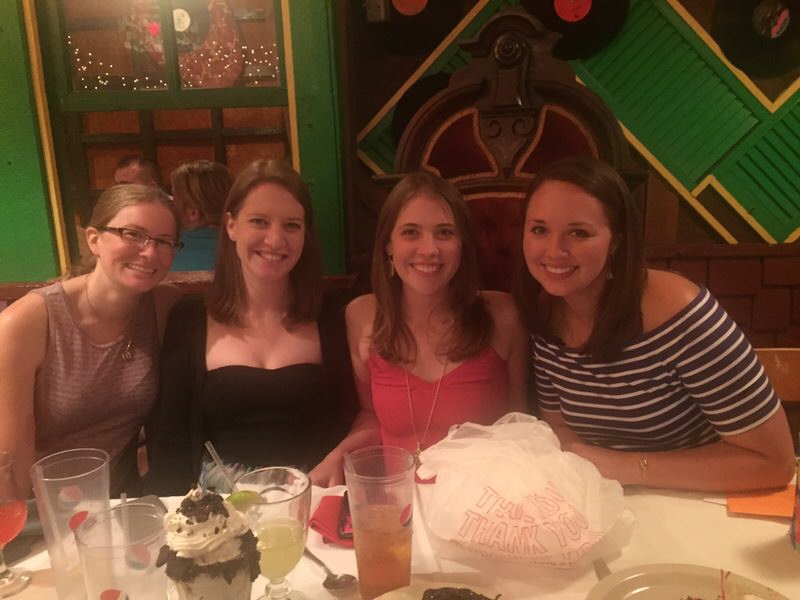 7) Growing up, what did you want to be?
7) Growing up, what did you want to be?
I wanted to be a veterinarian, and as my parents can probably attest to, I tried at a young age to make that dream a reality by bringing home a number of stray animals to heal and love. I chose to go into research though because I missed the science behind the behavior in neuroscience.
8) Who has influenced you the most in life?
That would be my family, especially my parents. They’ve always supported my dreams and helped me to see the potential in myself when I may have struggled to do so. I wouldn’t be where I am today without their help.
9) If you were stranded on a deserted island, what one band or musician would help keep your sanity?
Maroon 5, especially their first two albums.
10) What is your favorite quote?
“I began to realize how important it was to be an enthusiast in life. If you are interested in something, no matter what it is, go at it full speed. Embrace it with both arms, hug it, love it, and above all become passionate about it. Lukewarm is no good.” -Ronald Dahl
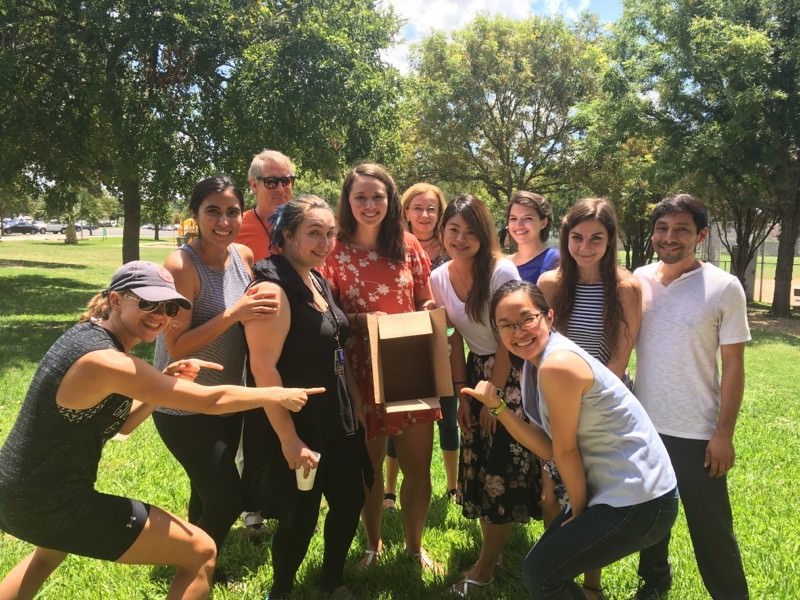 11) If you could travel anywhere, where would you go?
11) If you could travel anywhere, where would you go?
Back to Paris or Berlin, two of my favorite places. But I would love to travel to Italy or the UK at some point.
12) If you could only eat one thing for the rest of your life, what would it be?
Frozen mini Reese’s peanut butter cups.
13) What do you like to do outside of graduate school?
I love watching tennis, football, and basketball, and in my (very little) free time, I enjoy cooking or DIY-ing anything that’s recently been saved to my Pinterest board.
14) What’s next?
Haha, honestly? Pass my qualifying exam. Then I can start thinking about what is actually next.
